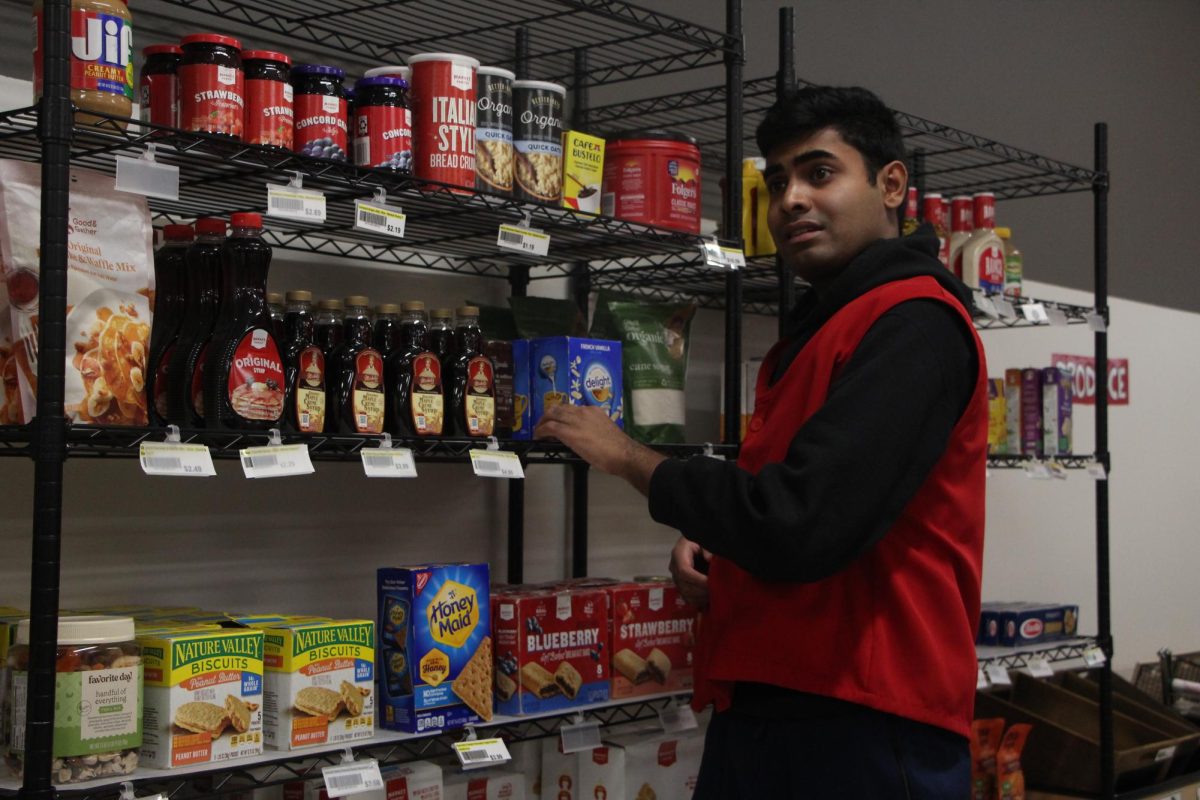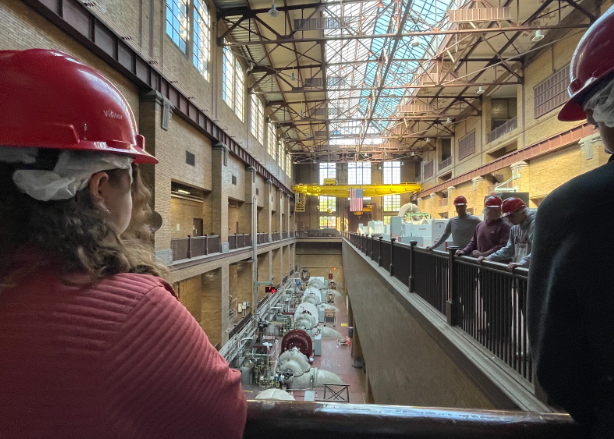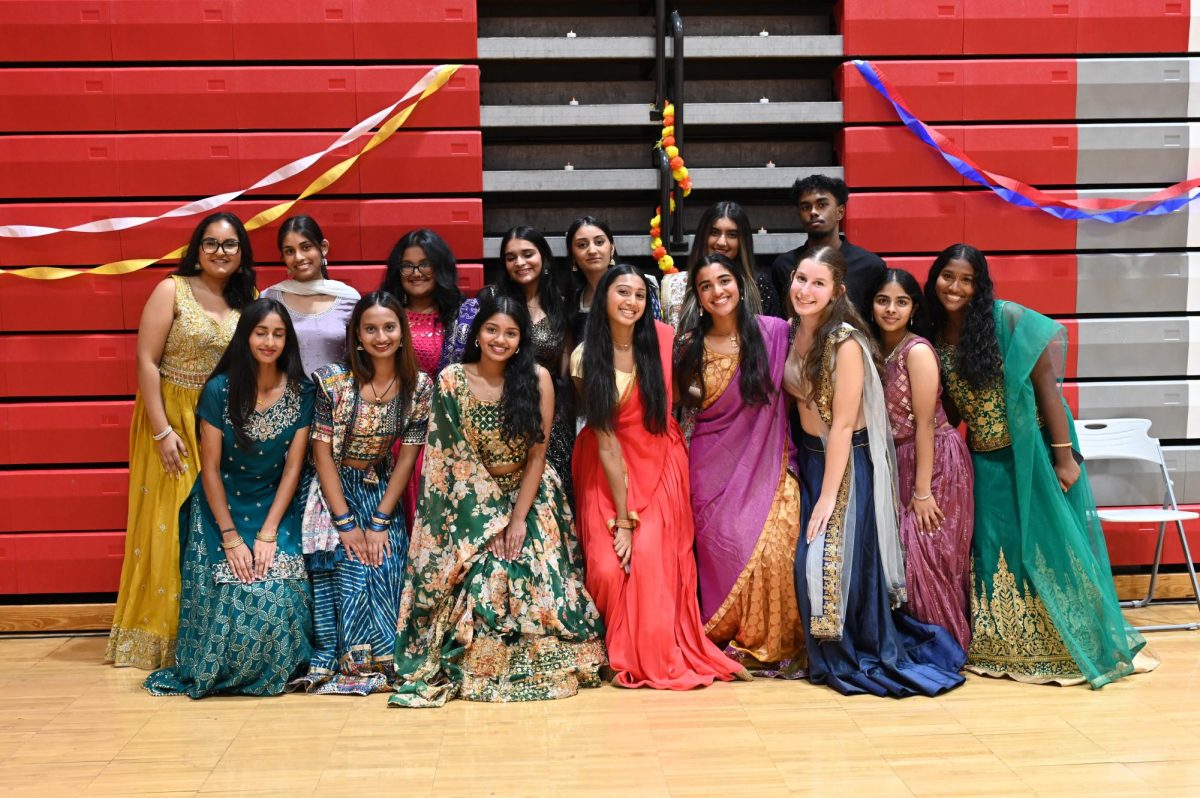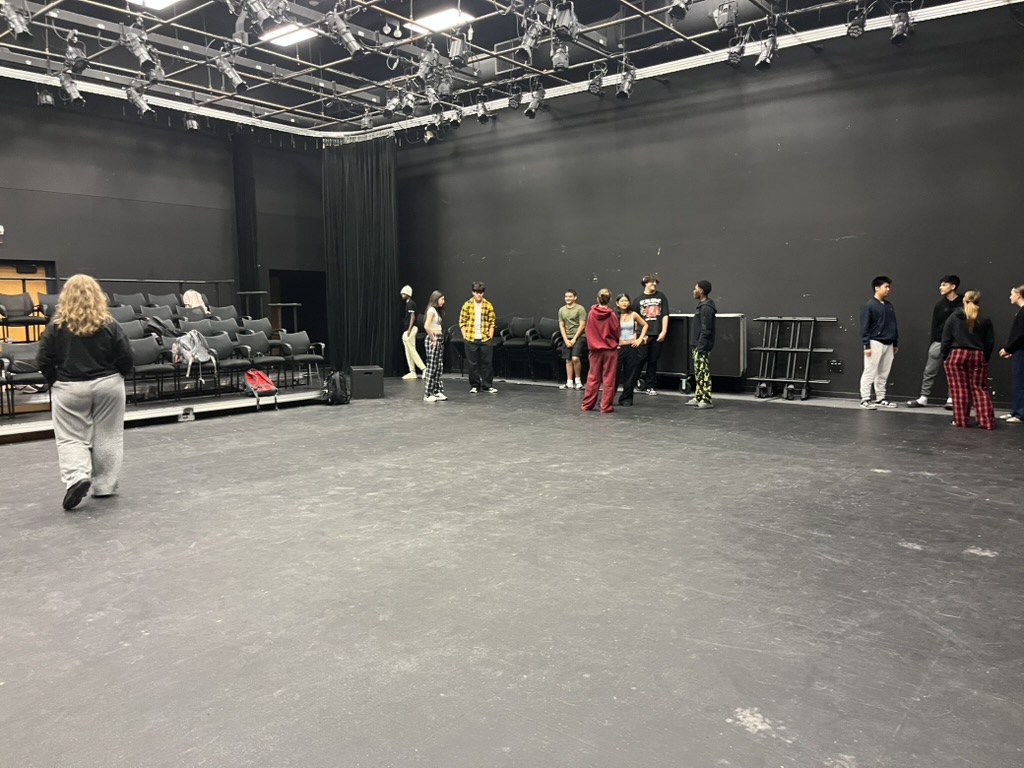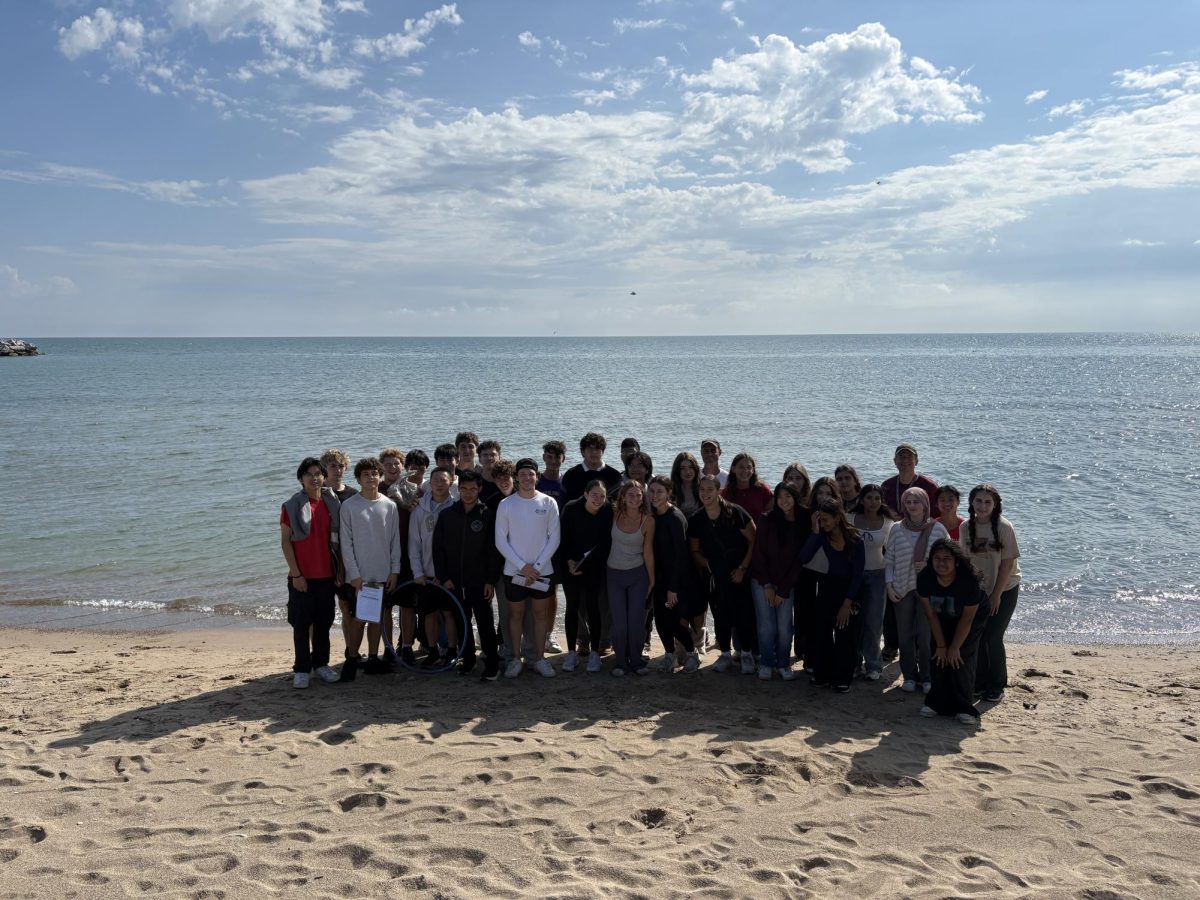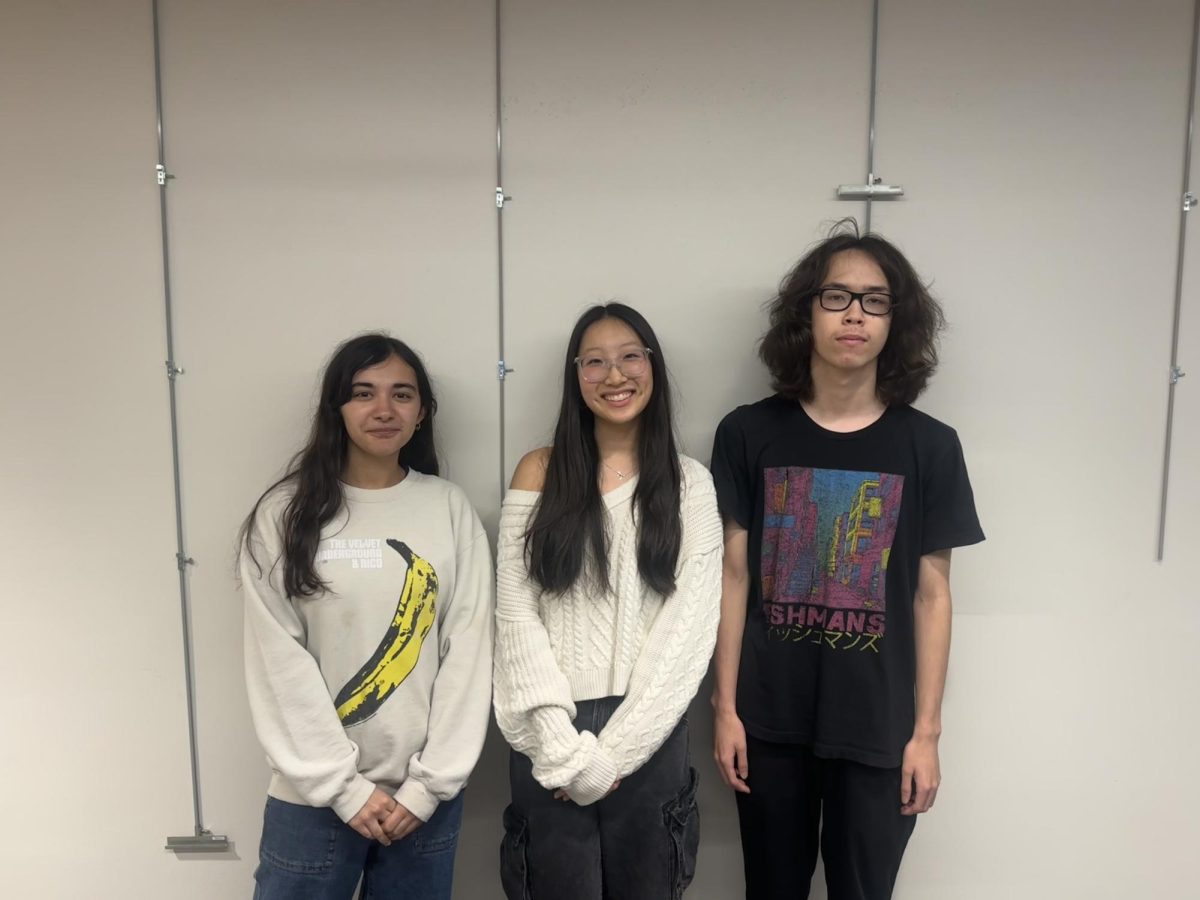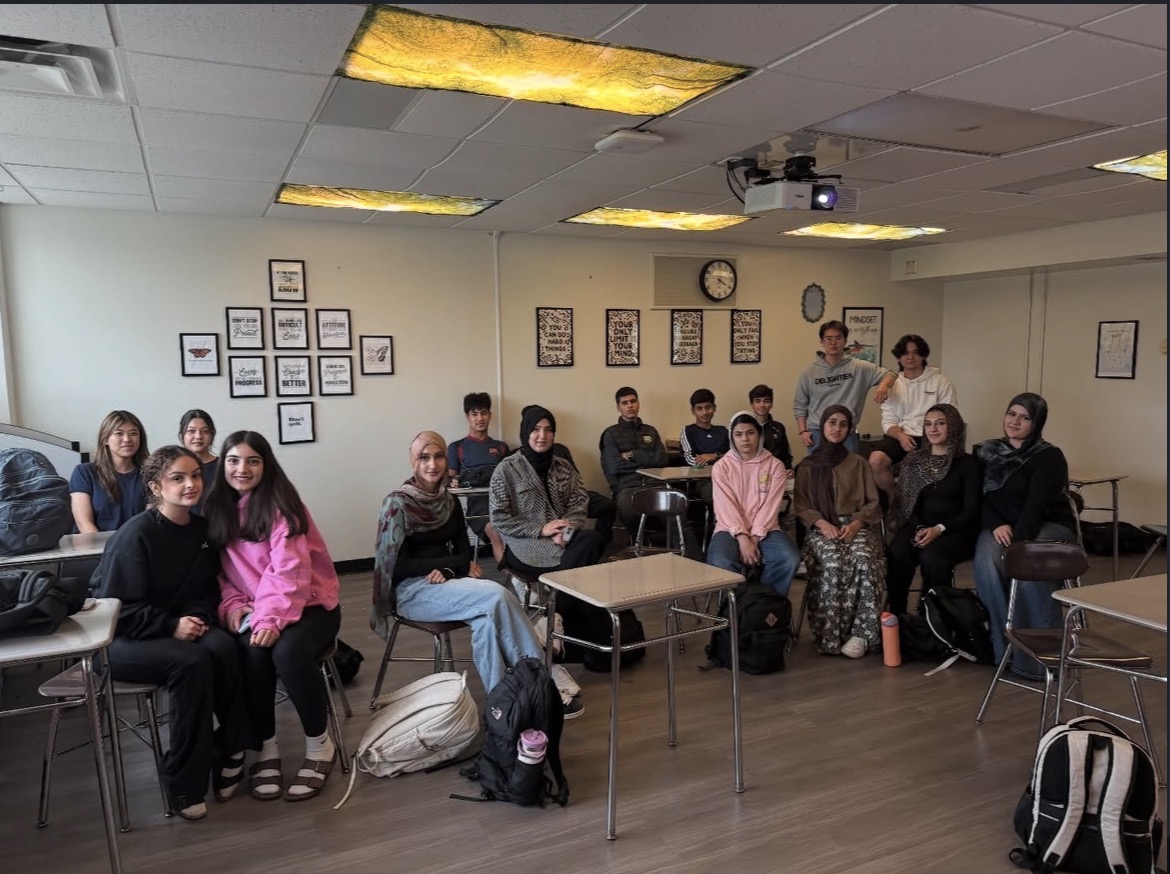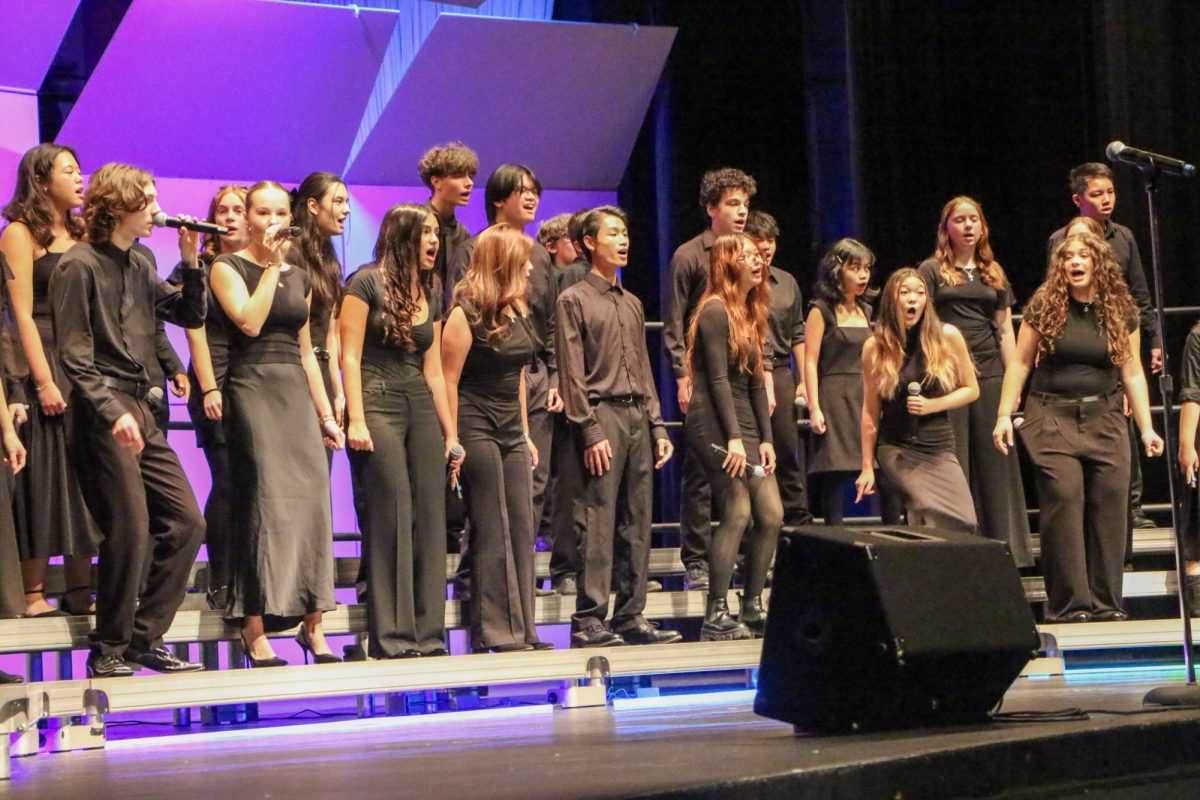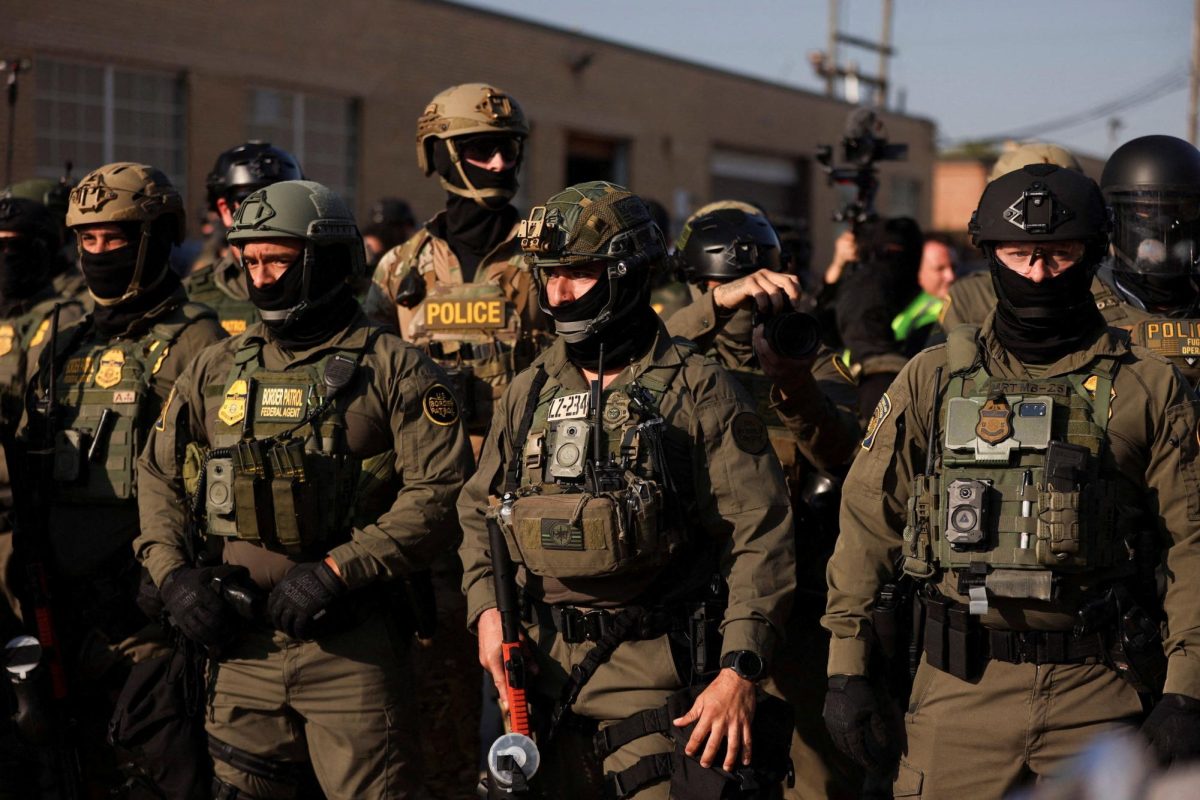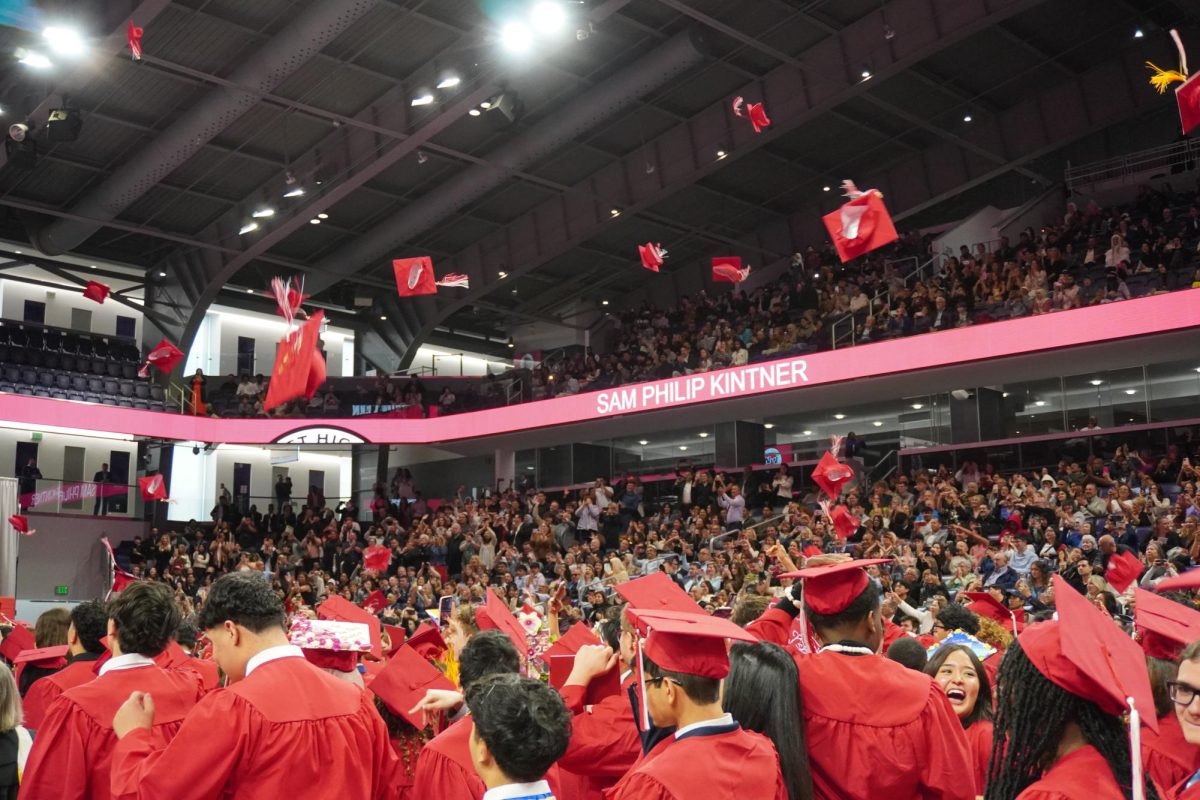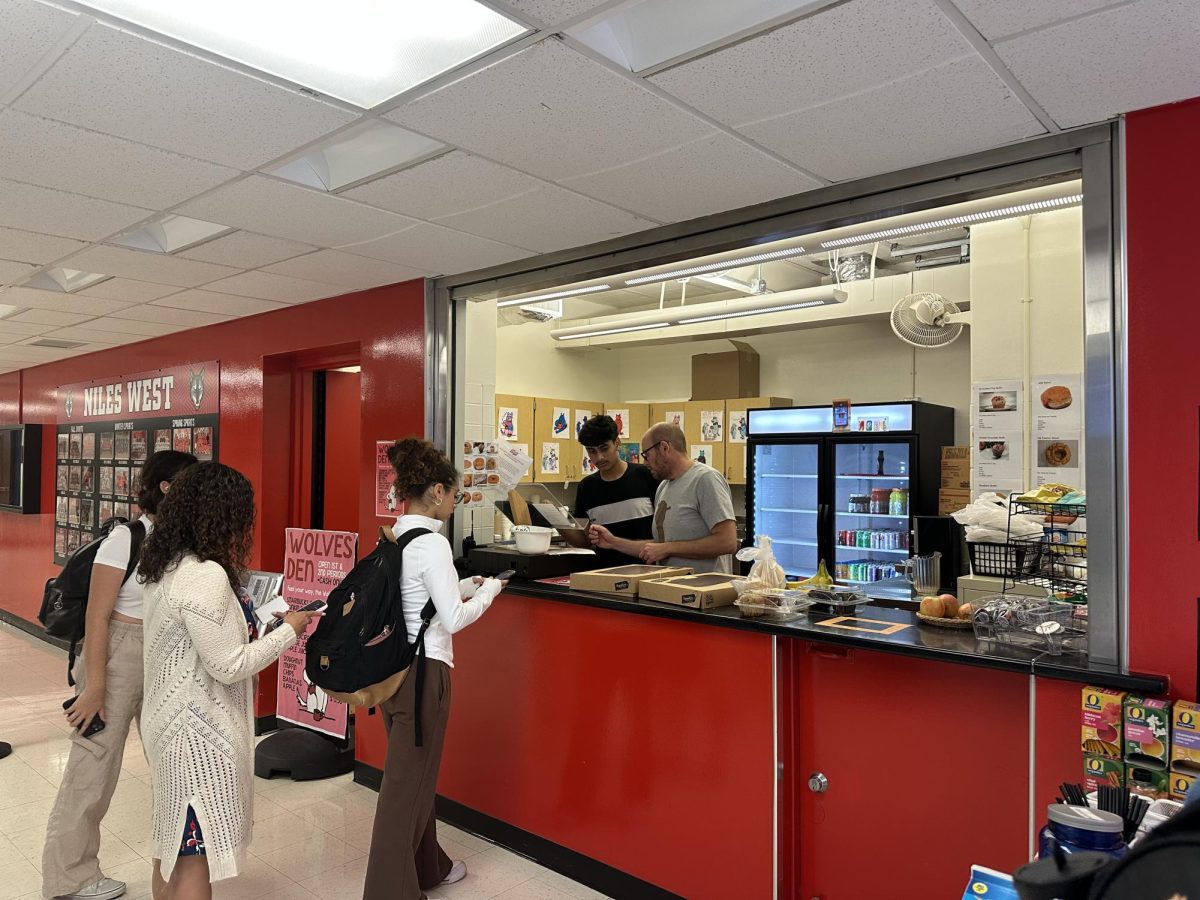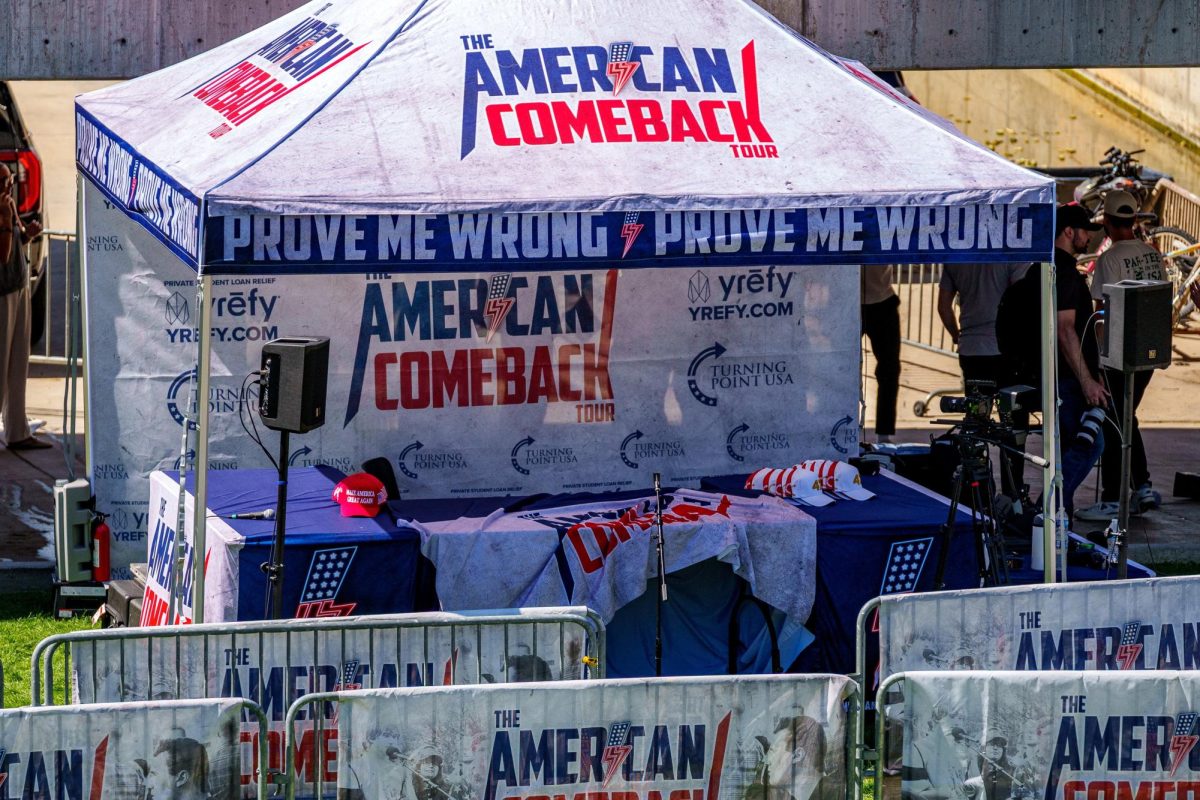This article has been updated since its original publication for clarification and corrections including names and roles of students and staff.
The D219 Bridges Adult Transition Center is a vocational, career, and community training program to prepare people with disabilities from the ages of 18 to before their 22nd birthday for integration into the community and workforce. The program has a curriculum developing independent living skills, employment skills, functional academics and vocational training tailored to a student’s specific needs and post secondary goals. Students have a wide range of classes and electives to take, from Business 101 to Digital Media. All eligible students must have an Individualized Education Program (IEP) and completed Niles West credits.
“The way our program was designed was to teach students vocational skills and life skills. Basically, our main goal is to help each student become as independent as we can before they leave,” Bridges director Kate Seiwert said.
The school day is from 8:30 am to 2:30 pm and typically follows a four-block schedule where most students are in two hands-on labs at a time. Customized instruction for each student is based on their individual needs and the types of skills they need help with. The four core classes of the curriculum are independent living, vocational awareness, community access/future planning and functional academics with a wide variety of electives to choose from as well.
Classes focus on practical or vocational skills for the future. For instance, functional academics teaches practical academic abilities like determining sale prices after discounts, how much to tip, how to budget efficiently, reading contracts and public signage, planning outings with friends and utilizing different modes of transportation to navigate places.
Electives include Business 101, Recreation and Leisure, Digital Media and Community Access. It offers a chance to get involved in different activities. For example, Business 101 students launched a business called Mason Jar Inc., which conducts small craft fairs through which students learn about how to handle money. The business is holding a pop-up shop at Bridges from 12/16 until 12/19.

The culture at Bridges is also personal and supportive. Classes are taught by teachers and paraprofessionals, and students often call their staff by their first name. Teachers enjoy the experience of getting to know their students and forming a close bond with them for the years they spend together.
“They have such great personalities and they work really hard and it’s so rewarding and fun to see them make progress with us till they end when they turn 22,” Bridges teacher Maggie Stewart said.
This curriculum is coupled with Bridges’ state-of-the-art facilities, ensuring quality education and learning opportunities for students. Facility upgrades were approved by the Board of Education, including member Joe Nowik, in 2020.
“I’m one of the founders of the concept because at the time, when I joined the board, my son, who’s a young man with special needs graduated out of Niles West and went to the Bridges program, which at the time was at Niles North,” Nowik said. “As a parent, I got to visit the building and see the classrooms, and I felt it was completely inadequate for the needs to have him learn life skills or have anybody who attends Bridges learning life skills, so I was able to convince the other board members saying that it’s time that we become more equitable for our students with special needs and create a better environment for them, and it took a few years but we finally were able to get the Bridges facility purchased and remodeled and built, so I’m very pleased about that.”
These upgrades encompassed Bridges’ various labs, like the Office Lab, Apartment Lab, Laundry Lab, Culinary Lab and the Target Lab where students can gain hands-on experience learning a skill.
Students cycle through different labs based on their schedule, which is personalized to which skills need to be worked on and which skills have more proficiency.
The Office Lab is the first vocational lab at Bridges. Tasks differ based on the student and include delivering mail, learning how to write emails, and typing. Local community members may submit requests to have students create packets and other projects for them, and the lab has phones where you can call and make an appointment.
The second lab is a fully functioning one-bedroom apartment lab that teaches independent living skills and responsibilities for adults. Here, students can learn how to make a bed, do laundry, put away clothes, organize and more. They will also learn more detailed information like the difference between cleaning products, and learn how to cook small meals, make meals for others, set the table and clean up.
The culinary lab teaches critical skills for not only learning how to make food but to be prepared for a job in the food service industry. Bridges paraprofessional and Niles West alum Tony Gates (class of 2014) outlines a typical day for students in the lab.
“We start our day definitely cooking something, making sure [our students are] ready for their lunches and preparing lunches; then, in the afternoon, we’re teaching them how it would be in a cleaner environment and they clean up what they were cooking and what they were cooking with, like tables after lunches,” Gates said.
The culinary lab is split into a restaurant side and another side for individual classroom instruction, where students learn how to make a specific recipe in stages in order to eventually make it on their own over three or four weeks. The first week, they get support and make the recipe with someone standing next to them. In the second week, their teacher backs off and by week four, they learn how to make the recipe independently.
The restaurant side mimics the back of a restaurant. Students come in and make a side dish to go along with the food supplied by Quest, the food service handler which also supplies lunch food to West. Students and staff can queue up outside in waiting chairs and be served food from their peers, who learn how to take orders and serve food. On this side, students make larger quantities of food instead of just for themselves. They learn measurements, how to package things, different recipes, how to cook, how to chop and how to handle food safely. There are standard industrial dishwashers and a three bin sink for students to learn how to operate in a work setting. The afternoon shift entails cleanup and preparation for the next day, cleaning tables and doing other parts of the job.
The laundry lab handles towels every day from Niles West and Niles North Physical Education classes and athletes. Students learn how to sort towels based on which building they are from, count them and launder them. It is complete with a set of industrial washing machines and dryers. After the towels are washed, they are all packaged and shipped back to Niles West and North.
The last major lab at Bridges is the Target lab, a miniature mock-up store that provides students with the opportunity to gain work experience in all areas of retail. Bridges pitched the idea of a mock-up store to Target corporate and Target employees from multiple local stores came to build and assemble the store for three days in a row, complete with racks lined with products, mannequins at the front and a checkout desk.
Student duties vary based on group and ability level and range from dressing mannequins, sorting clothes and merchandise, making sure Universal Product Codes are front-facing, etc. Students also practice Target pick-up orders, where they get a list of products to gather and package for a customer to get. Although no purchases are made, trainees learn to work with money at the cash register.
Tasks are stratified based on difficulty level and individual support needs of students. They can be seen written on the whiteboard and are in three groups. Students who need support with reading have color-coded instructions, intermediate students have mid-level tasks and advanced students have the most difficulty.
The role of paraprofessionals is to be job coaches. They complete an assessment after every shift for each student evaluating their professional and career readiness through a series of metrics like their punctuality, whether they check in, degree of independence, responsiveness, dressing and acting appropriately, and more. This assessment is designed by the vocational coordinator to gather information about when students are work-ready.
Students also have access to an employment specialist who helps students prepare for getting and succeeding in a job. Once students make satisfactory progress in in-house labs, they go on to work at a vocational site in the community. The vocational sites are Will’s Place (Dance Marathon’s 2023 Beneficiary), Skokie Public Library, Double Tree Hotel and Smoothie King.
“I work with the students and for my students, I work a lot with their parents on what community resources they have. We take tours of some of the programs in the community, such as Shore [Services] and The Douglas Center which are both here in Morton Grove and Skokie. I work with the parents to access funding to help pay for programming, so we do a lot of work with both the students and the families,” Stewart said.
In addition to extensive training, students also have access to a social worker, psychologist, nurse, employment specialist, vocational coordinator, contracted speech pathologists, and occupational and physical therapy from District 219. Any student who required these services in high school will continue to receive them at Bridges.
“I don’t get the job for them, but I can help with resumes and applying for jobs, practicing for interviews, keeping in communication with the employer once they do have that job, helping problem solve and anything relating to vocational and job assistance,” employment specialist Yvette Stroesser-Schmidt said.
The support provided to students post-graduation leverages the Americans with Disabilities Act of 1990, which prohibits discrimination against people with disabilities in employment, transportation, public accommodations, communications, access to state and local government programs and services and more.


